La publicación de Batiscafo 2008 – 2010 - Dropbox
La publicación de Batiscafo 2008 – 2010 - Dropbox
La publicación de Batiscafo 2008 – 2010 - Dropbox
You also want an ePaper? Increase the reach of your titles
YUMPU automatically turns print PDFs into web optimized ePapers that Google loves.
works? Are they being watched by a state entity<br />
or simply banned from expressing through<br />
in<strong>de</strong>pen<strong>de</strong>nt publications, lets say, which may<br />
be consi<strong>de</strong>red pamphlets ma<strong>de</strong> by <strong>de</strong>fectors?<br />
A world full of absurdity and I am aware<br />
that I could only experience it because I was<br />
a <strong>Batiscafo</strong> resi<strong>de</strong>nt. If I hadn’t been, these<br />
inequalities would not have affected me that<br />
much because they would have been disguised<br />
or distant. This ma<strong>de</strong> me think very much<br />
about my city, Rio <strong>de</strong> Janeiro, where inequalities<br />
are so cruel in that context and unequal<br />
people live si<strong>de</strong> by si<strong>de</strong>. But the difference is<br />
that in Rio these inequalities are protested<br />
through violent urban unrest while in Havana<br />
people wait. In both cases, people seem ready<br />
to explo<strong>de</strong>.<br />
I interviewed 26 people most of them<br />
critics and curators. It was curious that most<br />
of the artists I was interested to meet were not<br />
in Cuba due to numerous varied reasons:<br />
some left the country and others were traveling<br />
because of their work. That is why I focused<br />
my research on young critics and curatorial<br />
practice. Not too long ago, curators enjoyed<br />
little prestige in Cuban artistic milieu. As<br />
I already mentioned, any work not linked<br />
to an institution or that the Cuban government<br />
does not authorise in a given way is not<br />
in accordance with the law. Curators are only<br />
to be found in public centers and international<br />
foundations, and practicing freelance<br />
is a recent phenomenon in Cuba. This is<br />
something that came up in many interviews,<br />
although I was able to see that, in spite of these<br />
activities increasingly finding legitimate spaces<br />
in the country, the profession has no remuneration<br />
policies yet. Many curators survive<br />
by direct invitations from artists, that is, in<br />
Cuba artists pay <strong>–</strong> from their own pocket <strong>–</strong> for<br />
the work of the curator and the critical text for<br />
their exhibitions. And, therefore, curators<br />
barely gain curriculum with the exhibitions<br />
they participate in. Support and finance comes<br />
SEPTEMBER/SEPTIEMBRE 2009<br />
Estado o simplemente prohibidos <strong>de</strong> manifestarse<br />
por medio, por ejemplo, <strong>de</strong> publicaciones in<strong>de</strong>pen-<br />
dientes, que pue<strong>de</strong>n ser consi<strong>de</strong>radas como material<br />
panfletario <strong>de</strong>sertor? Un mundo <strong>de</strong> absurdos, y tengo<br />
consciencia <strong>de</strong> que eso pu<strong>de</strong> experimentarlo porque<br />
estuve como resi<strong>de</strong>nte en <strong>Batiscafo</strong>. De lo con-<br />
trario, esas <strong>de</strong>sigualda<strong>de</strong>s no me afectarían tanto<br />
pues estarían disfrazadas o distantes. Eso me hizo<br />
pensar mucho en mi ciudad, en Río <strong>de</strong> Janeiro, don<strong>de</strong><br />
las <strong>de</strong>sigualda<strong>de</strong>s son tan crueles en ese contexto<br />
y los <strong>de</strong>siguales también conviven lado a lado.<br />
Pero a diferencia <strong>de</strong> que en Río, es a través <strong>de</strong> la<br />
violencia urbana que esas <strong>de</strong>sigualda<strong>de</strong>s gritan y en<br />
<strong>La</strong> Habana las personas esperan. En los dos casos las<br />
personas están en su límite <strong>de</strong> explotar.<br />
Entrevisté 26 personas, en su mayoría críticos<br />
y curadores. Lo curioso fue que la mayor parte <strong>de</strong><br />
los artistas que me interesaba conocer se encontra-<br />
ban fuera <strong>de</strong> Cuba por diferentes motivos: algunos<br />
se fueron <strong>de</strong>l país y otros estaban viajando por<br />
trabajo. Por eso, mi foco <strong>de</strong> investigación pasó a<br />
ser sobre la joven producción crítica y práctica<br />
curatorial. Hace poco tiempo atrás, la función <strong>de</strong>l<br />
curador era una actividad <strong>de</strong> poco prestigio en el<br />
medio artístico cubano. Como ya mencioné, cual-<br />
quier trabajo que no esté ligado a una institución<br />
o, <strong>de</strong> alguna manera, acreditado por el gobierno<br />
cubano está fuera <strong>de</strong> la ley. El curador solo existe<br />
en centros públicos y en fundaciones internacio-<br />
nales, y esa práctica <strong>de</strong> manera autónoma es un<br />
fenómeno reciente <strong>de</strong>ntro <strong>de</strong> la escena cubana. Esta<br />
característica aparece en gran escala en muchas<br />
entrevistas, aunque pu<strong>de</strong> percibir que a pesar <strong>de</strong> las<br />
activida<strong>de</strong>s <strong>de</strong> estar conquistando espacios legiti-<br />
madores en el país, la profesión continúa carente<br />
<strong>de</strong> políticas vigentes para su remuneración. Muchos<br />
curadores sobreviven por medio <strong>de</strong> las invitaciones<br />
directas <strong>de</strong> los artistas; o sea, en Cuba, el artista<br />
que paga <strong>–</strong><strong>de</strong> su propio bolsillo- por el trabajo <strong>de</strong><br />
un curador y por el texto crítico <strong>de</strong> su muestra.<br />
Cuando es <strong>de</strong> esa manera el curador apenas gana<br />
currículum con las exposiciones en que participa.<br />
<strong>La</strong> única salida cuanto a financiamiento y apoyos<br />
pasa por las fundaciones internacionales y, en su<br />
only through international foundations and<br />
mostly in the case of projects ma<strong>de</strong> abroad.<br />
The same thing happens with the sale<br />
of works. The few existing art galleries are<br />
state-owned and they pay in local money, the<br />
peso, which is extremely <strong>de</strong>valued even in the<br />
country. The National Fine Arts Museum has<br />
an annual purchase policy with the purpose<br />
of increasing its patrimony and investing in<br />
young artists, and buys works in pesos. There<br />
is no market or collecting in the country and,<br />
ironically, the great flow of buying and selling<br />
Cuban art is in the United States. Artists are<br />
represented abroad, receive foreign currency<br />
and, if they <strong>de</strong>ci<strong>de</strong> to continue living in Cuba,<br />
their position is rather high. This is the case<br />
with most Cuban artists. It is good business to<br />
be an artist in Cuba!<br />
Most of the institutions I visited were well<br />
fitted out, had a<strong>de</strong>quate exhibition spaces<br />
and directors and curators were open to new<br />
i<strong>de</strong>as. The position directors must maintain<br />
in these institutions is rather <strong>de</strong>licate: even<br />
when navigating contemporary art practices; in<br />
some cases they may act like state censors. That<br />
is why many professionals leave institutions in<br />
or<strong>de</strong>r to risk of an in<strong>de</strong>pen<strong>de</strong>nt career which<br />
may be very unstable. I only knew two alternative<br />
spaces: Sandra Ceballos’s Aglutinador,<br />
which has firmly and strongly resisted for<br />
fifteen years, although closely watched by<br />
inspectors of the Revolution. To believe and to<br />
work are always actions of resistance.<br />
Throught the twenty days in Havana I felt<br />
a little of everything: impotence (any change<br />
in this context can only be an initiative by the<br />
Cuban people; foreigners never can act in<br />
this cultural logic); criminal <strong>de</strong>ception (why<br />
is everything so difficult? The way a person<br />
acts against another person is bureaucratic<br />
and this is visibly exhausting for Cubans<br />
themselves) and disillusion (How can dreams<br />
and utopias be so cruelly <strong>de</strong>stroyed? The<br />
Revolution was a real Utopia, a dream of the<br />
mayoría, cuando se trata <strong>de</strong> proyectos realizados<br />
fuera <strong>de</strong> Cuba.<br />
<strong>La</strong> misma lógica se aplica para la venta <strong>de</strong><br />
obras. <strong>La</strong>s pocas galerías <strong>de</strong> arte son estatales y<br />
negocian sus representaciones en moneda local, el<br />
Peso Nacional, que es extremadamente <strong>de</strong>svalori-<br />
sado incluso <strong>de</strong>ntro <strong>de</strong>l país. El Museo Nacional <strong>de</strong><br />
Bellas Artes posee una política anual <strong>de</strong> adqui-<br />
sición, con el objetivo <strong>de</strong> acrecentar el patrimonio<br />
y apostar en jóvenes artistas, por lo que adquiere<br />
obras en Peso Nacional. Dentro <strong>de</strong>l país no existe<br />
un mercado o coleccionismo y, por ironía, el gran<br />
flujo <strong>de</strong> compra y venta <strong>de</strong> arte cubano está en los<br />
Estados Unidos. El artista que es representado en el<br />
exterior, recibe en moneda extranjera y cuando opta<br />
por continuar viviendo en Cuba, conquista un alto<br />
peldaño <strong>de</strong> vida. <strong>La</strong> mayoría <strong>de</strong> los artistas cubanos<br />
se encuentran <strong>de</strong>ntro <strong>de</strong> este ejemplo. ¡Ser artista<br />
en Cuba es un óptimo negocio!<br />
<strong>La</strong>s instituciones que visité, en su mayoría,<br />
están bien equipadas, tienen espacios expositi-<br />
vos a<strong>de</strong>cuados y directores y curadores dispues-<br />
tos a noveda<strong>de</strong>s. <strong>La</strong> postura que necesita asumir<br />
un director frente a esas instituciones es bien<br />
<strong>de</strong>licada: incluso adicto a las prácticas contem-<br />
poráneas en arte, es preciso en algunos casos actuar<br />
como un censor a favor <strong>de</strong>l Estado. Ese es el motivo<br />
por el cual muchos profesionales <strong>de</strong>jan las institu-<br />
ciones para arriesgarse en carreras in<strong>de</strong>pendientes<br />
con un alto grado <strong>de</strong> inestabilidad. Apenas conocí<br />
dos espacios alternativos, el Aglutinador <strong>de</strong> Sandra<br />
Ceballos, que hace 15 años viene resistiendo firme<br />
y fuerte, incluso, vigilado <strong>de</strong> cerca por inspec-<br />
tores <strong>de</strong> la Revolución. Creer y trabajar son siempre<br />
acciones <strong>de</strong> resistencia.<br />
En estos veinte días en <strong>La</strong> Habana sentí un<br />
poco <strong>de</strong> todo: impotencia (cualquier cambio en ese<br />
contexto pue<strong>de</strong> acontecer solamente por iniciativa<br />
<strong>de</strong>l pueblo cubano. El extranjero nunca pue<strong>de</strong> actuar<br />
<strong>de</strong> esa lógica cultural); estafa (¿Por qué es todo<br />
tan difícil? <strong>La</strong> manera <strong>de</strong> actuar uno contra el otro<br />
es burocrática y eso es visiblemente agotador para<br />
los propios cubanos) y <strong>de</strong>silusión (¿Cómo es que<br />
los sueños y utopías son <strong>de</strong>strozados <strong>de</strong> manera tan<br />
40 <strong>Batiscafo</strong><br />
<strong>Batiscafo</strong><br />
40 SEPTEMBER/SEPTIEMBRE 2009


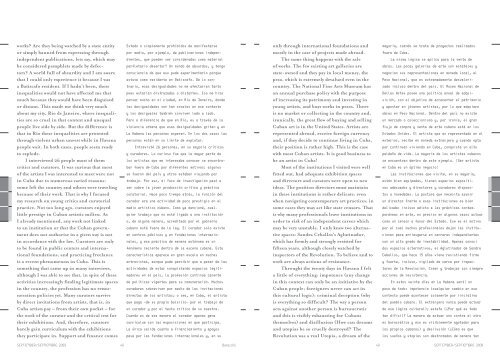
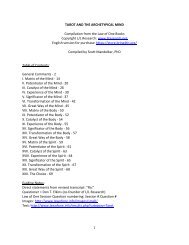
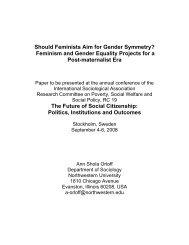
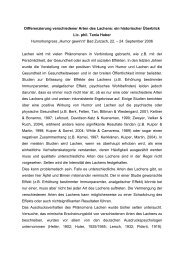
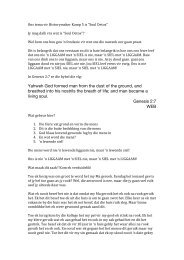
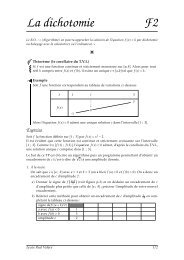

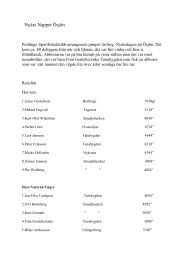


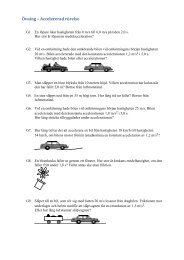
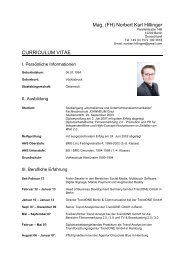
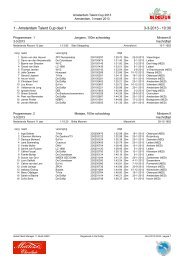

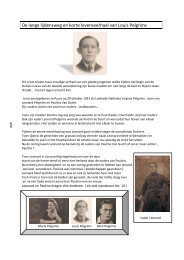
![Analisis Filologis Naskah Merong Mahawangsa [unduh] - Dropbox](https://img.yumpu.com/17722686/1/184x260/analisis-filologis-naskah-merong-mahawangsa-unduh-dropbox.jpg?quality=85)